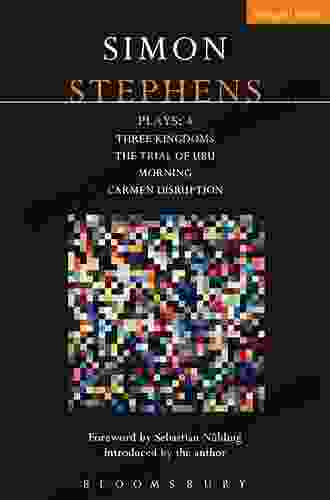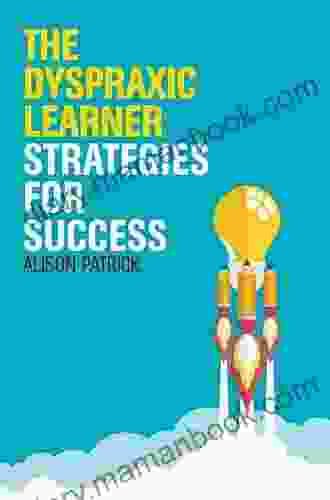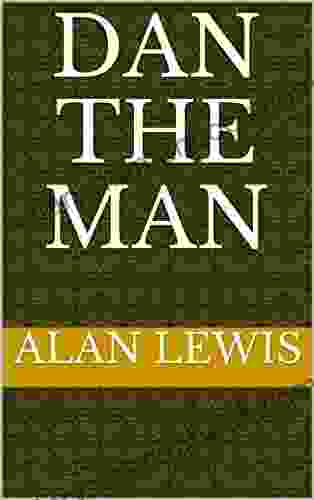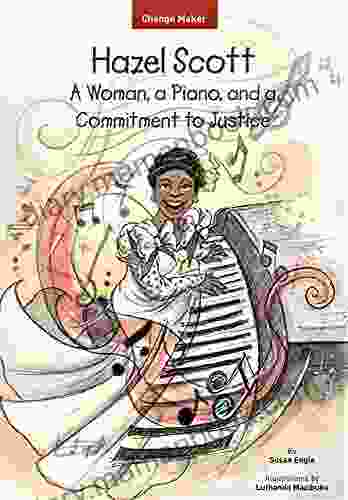Three Kingdoms, The Trial of Ubu, Morning Carmen, Disruption: Contemporary Perspectives on the Intersection of Politics, Performance, and Protest

Theatrical performances have always been a powerful means of expressing political ideas and igniting social change. From the ancient Greek tragedies to the modern-day experimental theater, plays have served as platforms for addressing pressing issues, challenging authority, and provoking thought.
4.7 out of 5
| Language | : | English |
| File size | : | 1117 KB |
| Text-to-Speech | : | Enabled |
| Enhanced typesetting | : | Enabled |
| Print length | : | 337 pages |
| Paperback | : | 88 pages |
| Item Weight | : | 3.35 ounces |
| Dimensions | : | 7.48 x 0.2 x 4.72 inches |
| Screen Reader | : | Supported |
In recent years, a number of contemporary theater productions have explored the intersection of politics, performance, and protest in innovative and thought-provoking ways. These productions have sparked controversy, ignited debate, and pushed the boundaries of what is considered "acceptable" in the world of theater.
This article will delve into three such productions: Three Kingdoms, The Trial of Ubu, and Morning Carmen. These plays offer unique perspectives on contemporary political issues, using different forms of theatrical expression to challenge the status quo and provoke audiences to think critically about the world around them.
Three Kingdoms: Epic Theater Meets Chinese History
Cao Cao, Liu Bei, and Sun Quan are three of the most famous figures in Chinese history. Their epic struggle for power during the Three Kingdoms period has been the subject of countless books, movies, and television shows. However, in its 2018 production of Three Kingdoms, the Hong Kong Repertory Theatre took a unique approach to this classic tale.
Instead of focusing on the military battles and political machinations of the Three Kingdoms period, the Repertory Theatre's production explored the human cost of war and the ways in which power corrupts. The play used a combination of traditional Chinese theater techniques and modern multimedia to create a visually stunning and emotionally powerful experience.
The production was a critical and commercial success, winning numerous awards and playing to sold-out houses. It was also praised for its political relevance, as it resonated with audiences living in a time of increasing authoritarianism and social unrest.
The Trial of Ubu: Absurdist Theater In the Age of Trump
Alfred Jarry's play Ubu Roi, first performed in 1896, is a classic of absurdist theater. The play follows the rise and fall of Ubu, a grotesque and tyrannical king. In 2016, the Public Theater in New York City staged a new adaptation of Ubu Roi, titled The Trial of Ubu.
The Public Theater's production was a direct response to the election of Donald Trump. The play's director, Ivo van Hove, saw Ubu as a metaphor for Trump and his administration. The production featured a cast of clowns and puppets, and it used a variety of satirical techniques to skewer Trump and his policies.
The Trial of Ubu was a controversial production. Some critics praised it for its political relevance and its willingness to challenge authority. Others criticized it for being too heavy-handed and for not being funny enough. However, the production was a huge success with audiences, and it played to sold-out houses for months.
Morning Carmen: Feminist Theater In the #MeToo Era
Carmen is one of the most famous and iconic characters in opera. She is a strong, independent woman who defies the social norms of her time. However, in its 2018 production of Morning Carmen, the Royal Opera House in London took a feminist approach to this classic opera.
Morning Carmen explored the aftermath of Carmen's death from the perspective of her friends and family. The opera used a combination of traditional operatic music and spoken dialogue to create a powerful and moving experience. The production was praised for its feminist message and its exploration of the complexities of female identity.
Morning Carmen was a critical and commercial success, and it played to sold-out houses. The production was also praised for its political relevance, as it resonated with audiences living in the #MeToo era.
Disruption: The Future of Political Theater
The three productions discussed in this article are just a few examples of the many contemporary theater productions that are exploring the intersection of politics, performance, and protest. These productions are challenging the status quo, provoking thought, and sparking debate.
As the world becomes increasingly complex and divided, political theater will play an increasingly important role in society. These productions will continue to challenge authority, give voice to the marginalized, and provoke audiences to think critically about the world around them.
The future of political theater is bright. As long as there are artists who are willing to challenge the status quo and provoke thought, there will be audiences who are eager to listen.
4.7 out of 5
| Language | : | English |
| File size | : | 1117 KB |
| Text-to-Speech | : | Enabled |
| Enhanced typesetting | : | Enabled |
| Print length | : | 337 pages |
| Paperback | : | 88 pages |
| Item Weight | : | 3.35 ounces |
| Dimensions | : | 7.48 x 0.2 x 4.72 inches |
| Screen Reader | : | Supported |
Do you want to contribute by writing guest posts on this blog?
Please contact us and send us a resume of previous articles that you have written.
 Top Book
Top Book Novel
Novel Fiction
Fiction Nonfiction
Nonfiction Literature
Literature Paperback
Paperback Hardcover
Hardcover E-book
E-book Audiobook
Audiobook Bestseller
Bestseller Classic
Classic Mystery
Mystery Thriller
Thriller Romance
Romance Fantasy
Fantasy Science Fiction
Science Fiction Biography
Biography Memoir
Memoir Autobiography
Autobiography Poetry
Poetry Drama
Drama Historical Fiction
Historical Fiction Self-help
Self-help Young Adult
Young Adult Childrens Books
Childrens Books Graphic Novel
Graphic Novel Anthology
Anthology Series
Series Encyclopedia
Encyclopedia Reference
Reference Guidebook
Guidebook Textbook
Textbook Workbook
Workbook Journal
Journal Diary
Diary Manuscript
Manuscript Folio
Folio Pulp Fiction
Pulp Fiction Short Stories
Short Stories Fairy Tales
Fairy Tales Fables
Fables Mythology
Mythology Philosophy
Philosophy Religion
Religion Spirituality
Spirituality Essays
Essays Critique
Critique Commentary
Commentary Glossary
Glossary Bibliography
Bibliography Index
Index Table of Contents
Table of Contents Preface
Preface Introduction
Introduction Foreword
Foreword Afterword
Afterword Appendices
Appendices Annotations
Annotations Footnotes
Footnotes Epilogue
Epilogue Prologue
Prologue Eva Marie Wood Wolf
Eva Marie Wood Wolf Albert Einstein
Albert Einstein David Baldacci
David Baldacci Alberto Hazan
Alberto Hazan William Shakespeare
William Shakespeare Imagine Dragons
Imagine Dragons Simon Stephens
Simon Stephens Christine Dzidrums
Christine Dzidrums Deborah Chester
Deborah Chester Joseph Staten
Joseph Staten Dante Alighieri
Dante Alighieri Michael L Adams
Michael L Adams William Trevor
William Trevor Shlomi Harif
Shlomi Harif Paul Oakes
Paul Oakes Mary M Dalton
Mary M Dalton Michelle Wilson
Michelle Wilson John Drake
John Drake Myka Hunt
Myka Hunt Alberto Carretero
Alberto Carretero
Light bulbAdvertise smarter! Our strategic ad space ensures maximum exposure. Reserve your spot today!
 Derek CookFollow ·16.8k
Derek CookFollow ·16.8k Virginia WoolfFollow ·18k
Virginia WoolfFollow ·18k Edmund HayesFollow ·18.6k
Edmund HayesFollow ·18.6k Deion SimmonsFollow ·14.7k
Deion SimmonsFollow ·14.7k Salman RushdieFollow ·10.8k
Salman RushdieFollow ·10.8k Emmett MitchellFollow ·7.6k
Emmett MitchellFollow ·7.6k Howard BlairFollow ·18.5k
Howard BlairFollow ·18.5k Ray BlairFollow ·18.3k
Ray BlairFollow ·18.3k
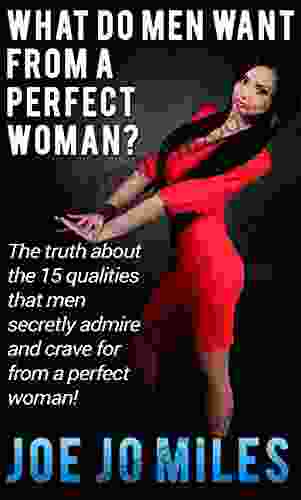
 Jorge Luis Borges
Jorge Luis BorgesThe Truth About the 15 Qualities That Men Secretly Admire...
Every woman wants to be loved and...
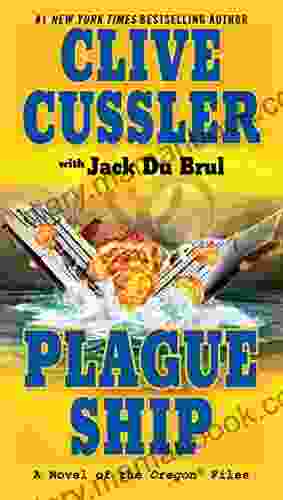
 Francisco Cox
Francisco CoxPlague Ship: Unraveling the Mystery of the Oregon Files
The Oregon Files, a collection of classified...
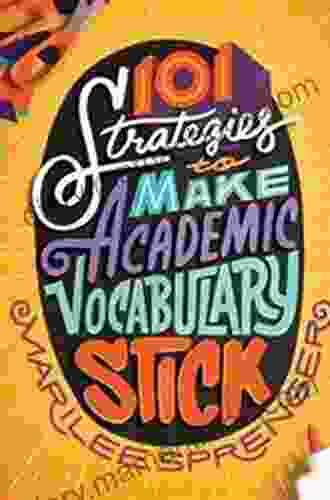
 Rudyard Kipling
Rudyard Kipling101 Strategies to Make Academic Vocabulary Stick: A...
Academic vocabulary is an...
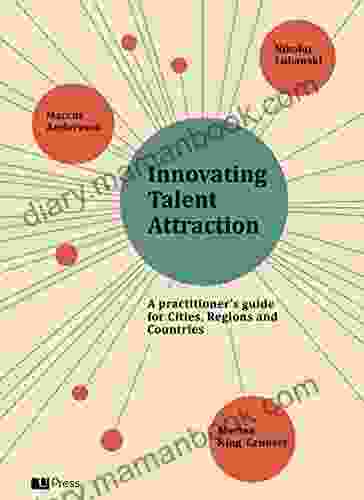
 Fletcher Mitchell
Fletcher MitchellPractitioner Guide for Cities, Regions, and Countries:...
The world is...

 Emilio Cox
Emilio CoxOptimization and Security Challenges in Smart Power Grids
Smart power grids (SPGs) are emerging as a...
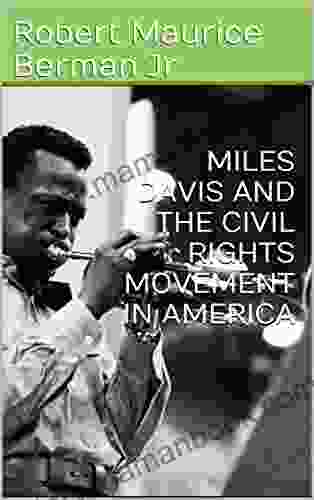
 Chandler Ward
Chandler WardMiles Davis and the Civil Rights Movement in America: A...
Miles Davis, the iconic jazz...
4.7 out of 5
| Language | : | English |
| File size | : | 1117 KB |
| Text-to-Speech | : | Enabled |
| Enhanced typesetting | : | Enabled |
| Print length | : | 337 pages |
| Paperback | : | 88 pages |
| Item Weight | : | 3.35 ounces |
| Dimensions | : | 7.48 x 0.2 x 4.72 inches |
| Screen Reader | : | Supported |


